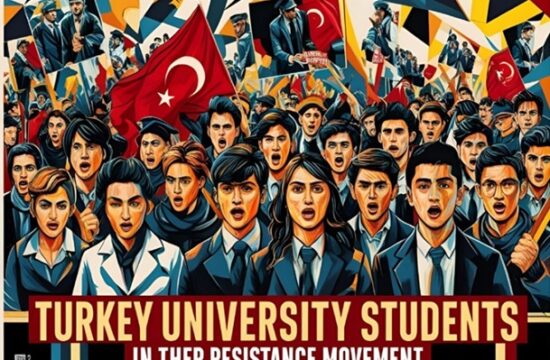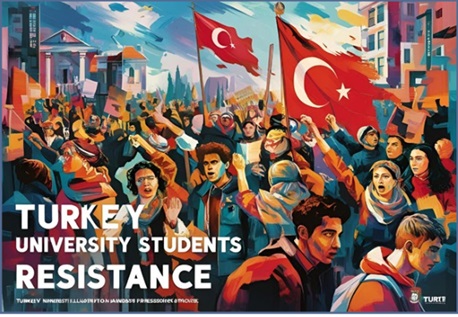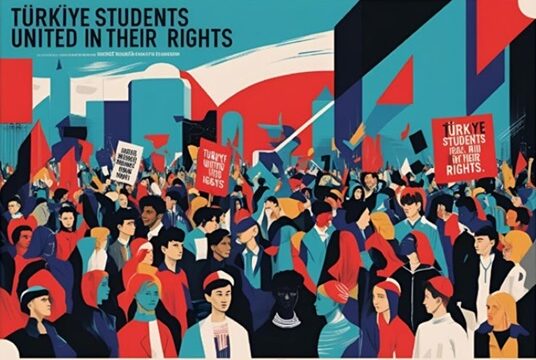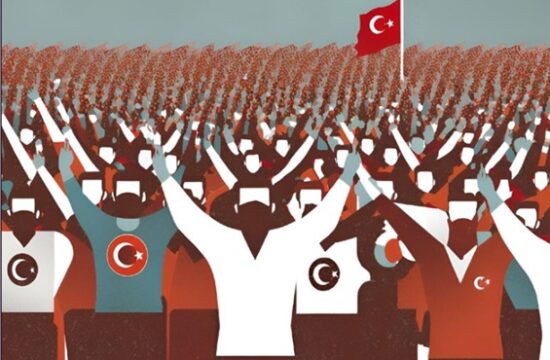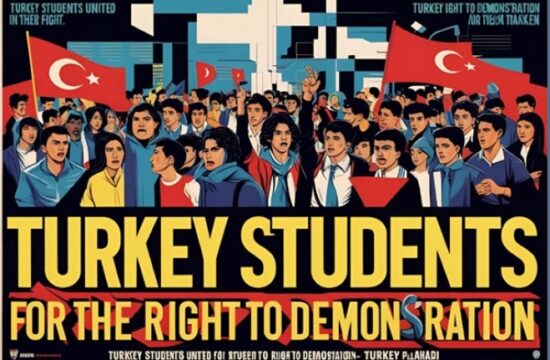Canberk
UNIVERSITY OF ANKARA
picture source: Created with AI
Since the arrest of Ekrem İmamoğlu, student protests have continued in many cities across Türkiye. I’ve written about some of the most important events since March 19. While my goal isn’t to provide a comprehensive chronological list of the protests in Ankara, certain events stand out and deserve to be mentioned.
18 March 2025 – The Rectorate of İstanbul University canceled Ekrem İmamoğlu’s university degree. (İmamoğlu is the Mayor of İstanbul.)
19 March 2025 – Students of İstanbul University began protesting the Rectorate’s decision and broke through police barricades. This moment became a turning point for student protests. On the same day, ODTÜ students began marching from the campus to Güvenpark.
Also on 19 March, people in cities across Türkiye began protesting İmamoğlu’s arrest.
20 March 2025 – Middle East Technical University (ODTÜ) called on all universities to support the ongoing resistance and break the police barricades around its campus.
Students from Ankara University were blockaded by police in an attempt to stop their support for the ODTÜ resistance. After six hours of stand-off, the students were freed and joined the ODTÜ resistance.
21 March 2025 – At ODTÜ, police intervened harshly both inside and outside the A1 gate.
24 March 2025 – Protesters on Ziya Gökalp Street were met with plastic bullets, pepper spray, and TOMAs (riot control water cannons).
8 March 2025 – The Great University Meeting began in Ankara’s Seğmenler Park
After this chronological summary, I believe it’s important to provide some background on the educational structure in Ankara.
There are 24 universities in Ankara. Three of these are directly affiliated with law enforcement or the military: Gülhane Military Medical Academy, the Turkish National Police Academy, and the Turkish Military Academy. From my perspective on the ground, I have not observed any organized protests from these institutions. Their strict discipline and deeply rooted authoritarian culture may be reasons for this, though individual participation cannot be ruled out.
Thirteen of the universities are private or foundation-owned. These include: Ufuk University, Bilkent University, Turkish Aeronautical Association University, TOBB University of Economics and Technology, Atılım University, TED University, Çankaya University, Başkent University, Lokman Hekim University, Yüksek İhtisas University, OSTİM Technical University, Ankara Science University, and Ankara Medipol University. Historically, protests from these institutions have been limited (with the exception of Bilkent). However, during the Great University Meeting in Seğmenler, I saw representatives from most of these universities. It was a rare opportunity to hear their voices and problems.
The remaining eight are public universities, and they form the core of Ankara’s university protest movement. These are: Gazi University, Ankara University, Hacettepe University, ODTÜ, Hacı Bayram Veli University, Ankara Yıldırım Beyazıt University, Ankara Social Sciences University, and Ankara Music and Fine Arts University.
Among them, several universities have played key roles in the protests:
Gazi University, known for its rightwing traditions, surprised many with large-scale participation—particularly outside the A1 gate of ODTÜ. In my opinion, the government’s recent approach to the Kurdish issue and hints of new policies may have influenced nationalist student involvement. The arrest of Ümit Özdağ (a right-wing politician and leader of Zafer Partisi) could also have contributed to the participation of right-leaning protestors.
Ankara University reflects a mix of political ideologies, varying by faculty. It has a long-standing tradition of protest involvement and continues to play a significant role in the current movement.
ODTÜ is arguably the most prominent university in Ankara’s protest history, with deep leftist traditions. Since the beginning of the recent protests, ODTÜ has been at the forefront. The fiercest clashes with police have occurred at its A1 and A4 gates. Students from various universities have gathered at ODTÜ to help break through heavy police barricades. Harsh police interventions occurred here especially on March 20 and 21.
Hacettepe University and Bilkent University have also played major roles. Bilkent’s involvement is particularly notable, given its private status and strict anti-protest protocols. Seeing large-scale protests from Bilkent students is quite unusual.
There is one more important point to make: although İmamoğlu is a key figure, the protests are not just about him. The real driving force is the deep social frustration building over the years. Decades of structural problems—some predating the AKP, others emerging under its rule—have pushed large segments of society into the streets. Interestingly, most of the protestors I’ve spoken with say they have little faith in any of the mainstream political parties, including CHP. Many emphasize that they are not out there just for İmamoğlu.
These protests are fueled by broader issues: social injustice, rampant corruption, worsening economic conditions, and widespread lawlessness. That is the real core of this movement




